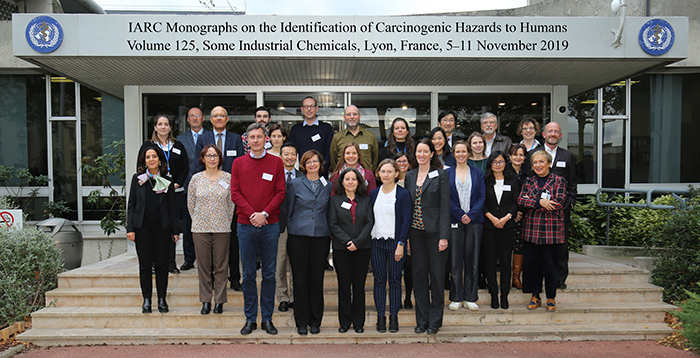Rusyn-Chaired Group Evaluates Human Carcinogenic Hazards For International Cancer Research Agency
Dr. Ivan Rusyn, Texas A&M University Professor in the College of Veterinary Medicine & Biomedical Sciences’ (CVM) Department of Veterinary Integrative Biosciences (VIBS), has completed service as chair of the International Agency for Research on Cancer (IARC) Monographs working group on the Identification of Carcinogenic Hazards to Humans (Volume 125): “Some Industrial Chemical Intermediates and Solvents.”

The IARC is the specialized cancer agency of the World Health Organization (WHO) tasked with promoting international collaboration in cancer research.
The IARC Monographs program identifies environmental factors that are carcinogenic hazards to humans, including chemicals, complex mixtures, occupational exposures, physical agents, biological agents, and lifestyle factors.
National health agencies can use this information as scientific support for their actions to prevent exposure to potential carcinogens.
IARC Monographs are developed by the interdisciplinary working groups of expert scientists who review the published studies and assess the strength of the available evidence that an agent can cause cancer in humans. Since 1971, more than 1,000 agents have been evaluated, of which more than 400 have been identified as carcinogenic, probably carcinogenic, or possibly carcinogenic to humans.
In November 2019, a working group of 13 scientists from eight countries met at IARC in Lyon, France, to finalize their evaluation of the carcinogenicity of five high production volume chemicals: glycidyl methacrylate, 1-butyl glycidyl ether, 1-bromo-3-chloropropane, 4-chlorobenzotrifluoride and allyl chloride. Their findings have been reported in the Lancet Oncology. These assessments will be published in Volume 125 of the IARC Monographs.
“The IARC Monographs are a product of systematic reviews of the evidence in humans and experimental systems,” Rusyn said. “These documents and carcinogenic hazard evaluations serve important role in cancer prevention. Importantly, Volume 125 working group was applying recently amended evaluation procedures that are outlined in the Preamble to the Monographs that place mechanistic evidence on par with the evidence from studies in humans and experimental animals.”
###
For more information about the Texas A&M College of Veterinary Medicine & Biomedical Sciences, please visit our website at vetmed.tamu.edu or join us on Facebook, Instagram, and Twitter.
Contact Information: Jennifer Gauntt, Interim Director of Communications, Texas A&M College of Veterinary Medicine & Biomedical Science; jgauntt@cvm.tamu.edu; 979-862-4216


